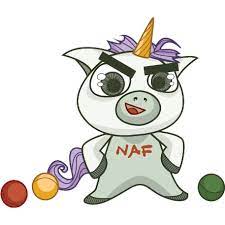For decades, our sector has had this refrain: “Donors and funders deserve transparency. They have a right to know how nonprofits spend their donations and the outcomes they achieved.” Many of us agree with this, including me. Yes, nonprofits should be transparent. They need to report their revenues, expenses, program activities, and the results of their work. And most nonprofits do, as required by law. In the US nonprofits are legally required to file 990 tax forms each year. Most orgs release annual reports. Throughout the year they also let people know what they’ve been up to, using newsletters and other forms of communication.
The challenge is that for some reason the above level of transparency is not enough, and we’ve all convinced ourselves that not only do donors and funders deserve to know specifically how the dollars they contributed were spent and what outcomes could be personally attributed to them, but also that this somehow makes sense.
Let’s talk about financial reports. One time I spent 15 hours trying to dissect out how much my organization was spending on each line item from the $75,000 grant a foundation provided us. Since this funder had a different chart of account than us, we first had recategorize our line items to match theirs. Then they also had a different fiscal year, so they only wanted a report on the expenses that fell in their particular fiscal year.
They wanted to know, among other line items, of the $890 we spent on postage that year, how much of their 75K was spent, but only from beginning of September to end of August. $172.28, I recall, according to my calculations using Excel formulas, the help of a staff member who loved sudoku, and some light dabbling in the arcane arts, which I can’t really talk about, but it did involve a bit of beet juice as a vegan substitute for chicken blood.
I’m going to call this accounting that requires disaggregating out expenses based on who contributed what: Donor-Adjacent Financial Tracking (DAFT). DAFT has been so prevalent in our sector that we’ve just all taken it at face value. Many funders seem fully bought into this, as evidenced by the constant silly, aggravating, and pointless financial reporting, like the above, that they force nonprofits to do.
The same goes for outcomes. I’m going to call it Contributor-Linked Outcome Disaggregation (CLOD). One funder to my last org not only requested a breakdown of how we spent $25,000, but also what outcomes their $25,000 achieved. “Please explain what outcomes were specifically attributable to the grant fund that we allocated to your organization” they wrote on the grant report instructions. This was followed up with “Please also indicate what outcomes you achieved that were NOT attributable to the funds we gave your organization.” I wept softly into my lunch: a container of hummus and some raw cauliflower florets, leftovers from a prior community event (Cauliflower florets are always the least popular!)
These examples seem extreme. But this sort of thinking—that individual expenses and outcomes can be attributed to individual donors and funders—is pervasive in our sector, manifesting in various degrees, and so we’ve all just accepted it as normal. Most funders will think it’s perfectly fine, even best-practice, to ask a nonprofit to parse out what their 10K or 100K specifically accomplished, and to do it on the funder’s own timeline, and not what timeline makes sense for the nonprofit’s programs and services and fiscal year.
Can you imagine if for-profits are expected to do this? Picture someone going to a store to buy a laptop:
Customer: “Here’s $750 for my laptop. At the end of the year, I want to know how you spent the $750 I gave you and how it helped your bottom line.”
Cashier: “Uh, we’re a publicly traded company, and in the US the SEC requires that we file financial reports every quarter, as well as file annual and 10-Q and 10-K reports. You’re more than welcome to those reports.”
Customer: “No, bro, I need a detailed report of how much of my specific $750 you spent on each line item. For instance, of the $750, how much went to your rent, how much to your CEO’s salary, etc. And also how my $750 affected your stock price.”
It’s time to admit that this is a delusion, a charade we’ve all be upholding. And a destructive one.
…









